The Commission presents the results of 2022–2023 space-related research calls for proposals under Horizon Europe.
In total, €166 million will support 54 space research projects implemented by the European Health and Digital Executive Agency (HaDEA) and the EU Space Programme Agency (EUSPA).
The selected projects will bring breakthrough innovations and contribute to strengthening both the European Union Space programme and other space research priorities in various domains, from Earth observation to European Global Navigation Satellite System (EGNSS), secure telecommunications and autonomous access to space.
The selection will also boost the Union’s competitiveness and technological non-dependence and lead to the development of new services and downstream applications for Copernicus, Galileo, European Geostationary Navigation Overlay Service (EGNOS), and European Union Governmental Satellite Communications programme (GOVSATCOM).
See the detailed results:

Discover some of the selected projects:
 SCARBOn
SCARBOnAs part of the 2023 Horizon Europe calls for Space, the call managed by HaDEA, the Health and Digital Executive Agency, included a topic for end-to-end Earth observation systems and associated services. Four projects were successfully ranked and the related consortia have been informed. Amongst them is project SCARBOn (Space CARbon Observatory Next step).
It aims to build a constellation of small greenhouse gases monitoring satellites flying an innovative miniaturised instrument and a compact aerosol sensor to measure CO2 and CH4 emissions. They will deliver twice-daily accurate global measurements. The project will mature the technologies involved, with the aim to deliver an operational system by the end of the decade. SCARBOn’s daily emissions monitoring data will be a valuable contributor to the European Commission’s endeavour to fight climate change.
SCARBOn will receive a grant of more than €2.8M.
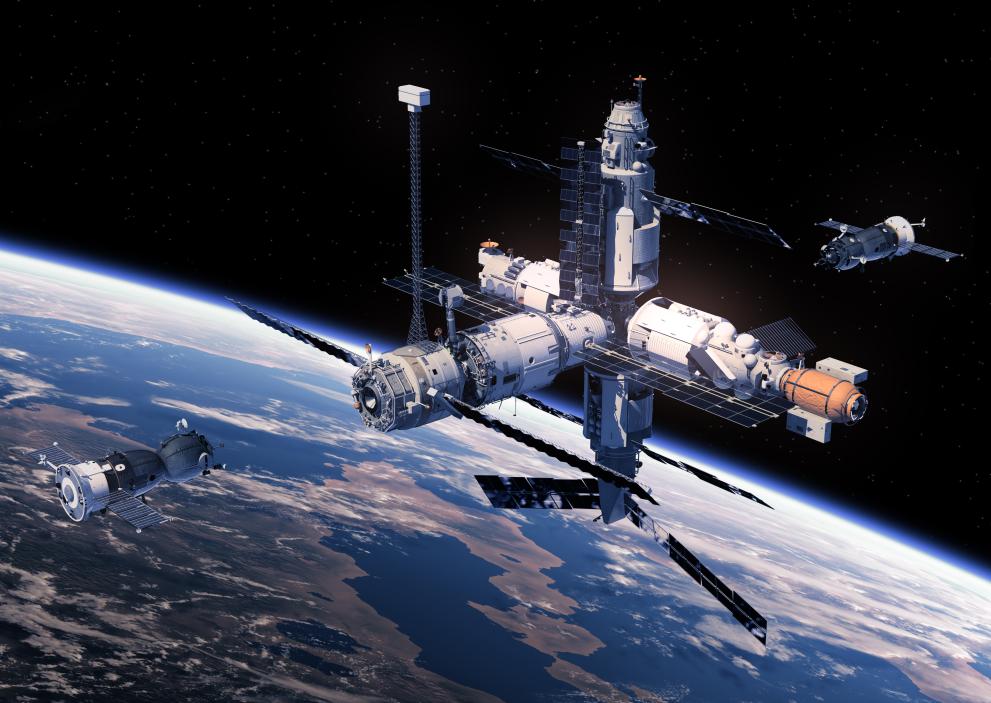 Space USB
Space USBAs part of the 2023 Horizon Europe calls for Space, the call managed by HaDEA, the Health and Digital Executive Agency, included a topic for technologies to improve space systems and satellites flexibility and cost-efficiency. Six projects were successfully ranked and the related consortia have been informed. Amongst them is project SPACE USB.
The project aims at developing standards to connect modules of space objects in a universal and serial way, so that it becomes possible to build a satellite in space or to replace some of its parts in space. It will also designa standard “USB-like” interface and demonstrate it in terms of compactness, docking symmetry, large loads transfer, etc. and especially interoperability with other interfaces. Finally, the project will perform an experimental benchmark to confirm the achievements and the prospective industrial exploitation.
SPACE USB will receive a grant of €1.9M
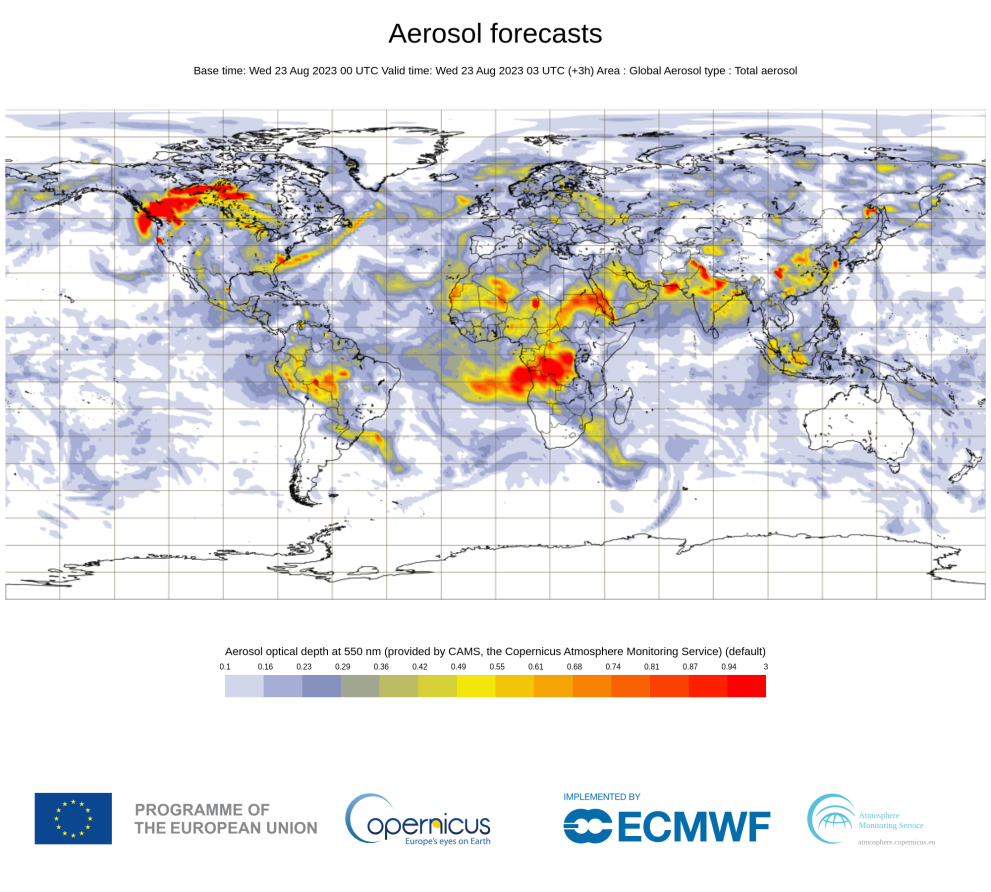 CAMAERA
CAMAERAAs part of the 2023 Horizon Europe calls for Space, the call managed by HaDEA, the Health and Digital Executive Agency, included a topic for the evolution of the Copernicus services for atmosphere monitoring (CAMS), for climate change monitoring and for CO2 monitoring.
Three projects were successfully ranked and the related consortia have been informed. Amongst them is project CAMAERA (CAMS AERosol Advancement). It will provide, for the Copernicus Service for Atmosphere Monitoring, strong improvements of the aerosol modelling capabilities, of the assimilation of new sources of data and of a better representation of secondary aerosols and their precursor gases. To achieve this, the project will develop new prototype service elements in close collaboration with the CAMS service providers and other projects.
CAMAERA will receive a grant of €3.0M.
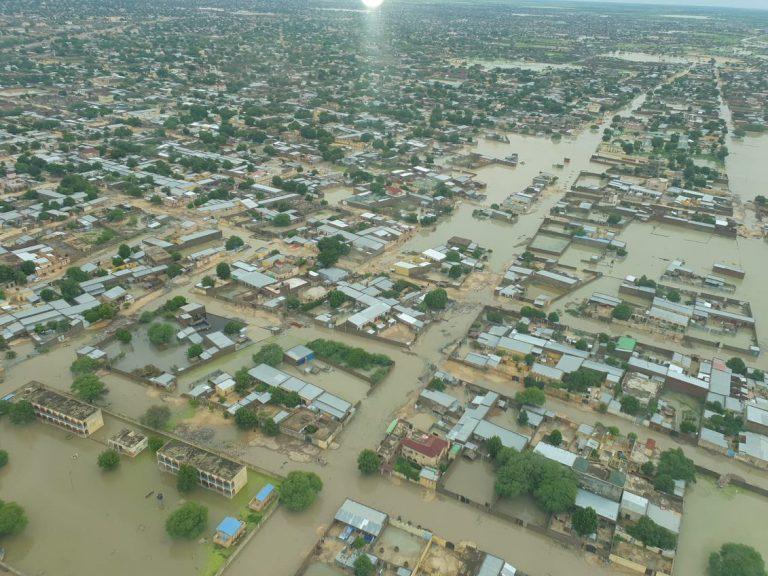 SEED-FD
SEED-FDAs part of the 2023 Horizon Europe calls for Space, the call managed by HaDEA, the Health and Digital Executive Agency, included a topic for the evolution of the Copernicus Emergency Management Service (CEMS). One project was successfully ranked and the related consortium has been informed. It is project SEED-FD.
The project stems from the Statement of UN Secretary- General António Guterres on the World Meteorological Day of 23 March 2022, when he said “Today, one third of the world’s people, mainly in least developed countries and small island developing states, are still not covered by early warning systems. This is unacceptable, particularly with climate impacts sure to get worse. Early warnings and action save lives”. Project SEED-FD (Strengthening Extreme Events Detection for Floods and Droughts) will break the current limitations of hydrological simulation accuracy and reliability and provide skilful floods and droughts forecasts anywhere in the world, including in the global south for lower and middle-income countries. It will target every critical part of the CEMS’ Hydrological Forecasting Modelling chain to transform new observational information into high-quality hydrometeo extreme event forecast products.
SEED-FD will receive a grant of close to €3.0M
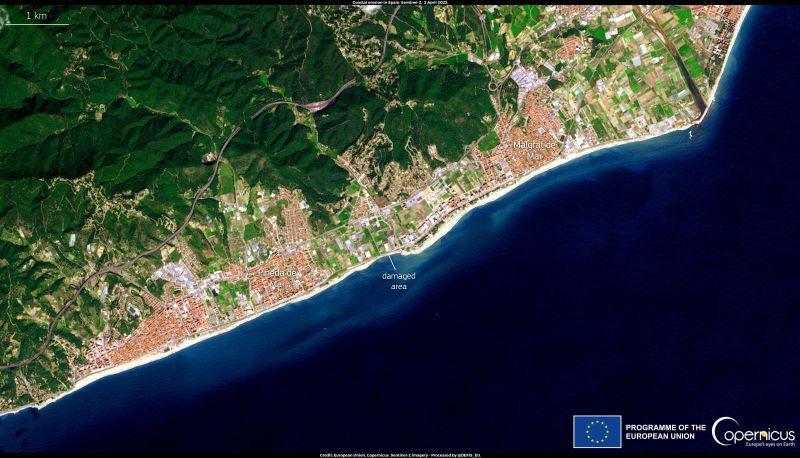 FOCCUS
FOCCUSAs part of the 2023 Horizon Europe calls for Space, the call managed by HaDEA, the Health and Digital Executive Agency, included a topic for the evolution of the Copernicus Marine Environment Monitoring Service (CMEMS).
One project was successfully ranked and the related consortium has been informed. It is project FOCCUS, which aims at enhancing existing capability and developing innovative coastal products. It will do so by designing and demonstrating the integration of Copernicus and Member State coastal services. This will allow to better address challenges such as the protection of coastal zones, the development of sustainable blue economies and the building of coastal zones’ resilience to climate change, anthropogenic pressures and natural hazards. At the heart of the proposed changes is the use of new space and in-situ coastal observations, innovations in data fusion, data processing and visualisation together with seamless numerical coastal prediction.
FOCCUS will receive a grant of €5.0M.
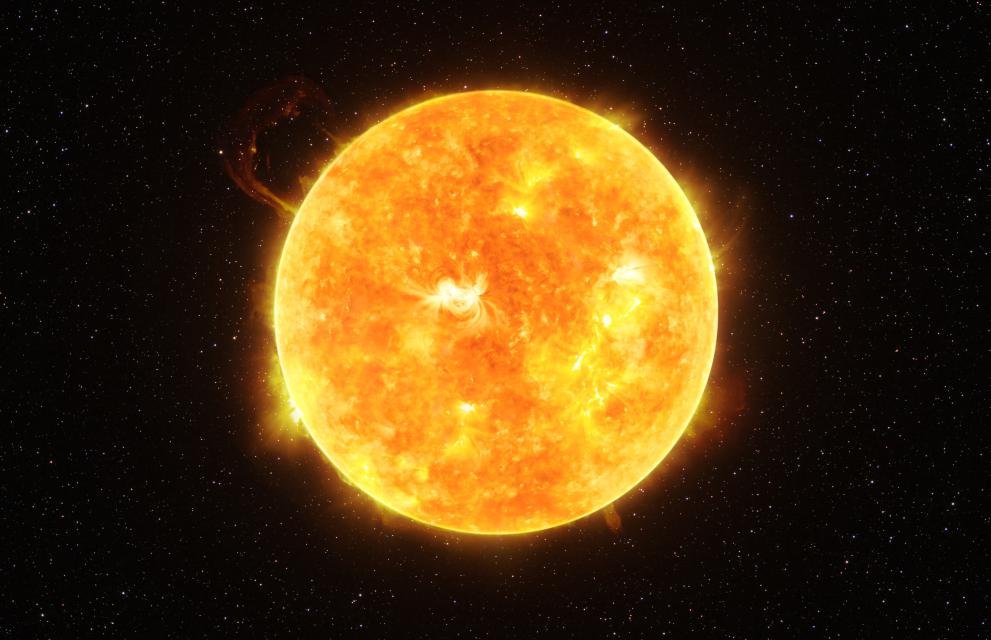 SOLER
SOLERAs part of the 2023 Horizon Europe calls for Space, the call managed by HaDEA, the Health and Digital Executive Agency, included a topic for scientific exploitation of space data. Six projects were successfully ranked and the related consortia have been informed. Amongst them is project SOLER.
The project will study energetic solar eruptions starting from fast coronal mass ejections, strong X-ray flares and large solar energetic particle events. Key parameters of the eruptions will be determined and their interrelations examined to improve our understanding of how the eruptive phenomena are linked, how they interact with each other, and how they result in acceleration of high energy particles and their release from the solar corona into interplanetary space. SOLER will use ESA, NASA and national mission data along with ground-based observations and a variety of innovative data and image processing techniques together with cutting-edge models. Catalogues, datasets and tools will be openly available for the community for further exploitation.
SOLER will receive a grant of close to €1.5M.
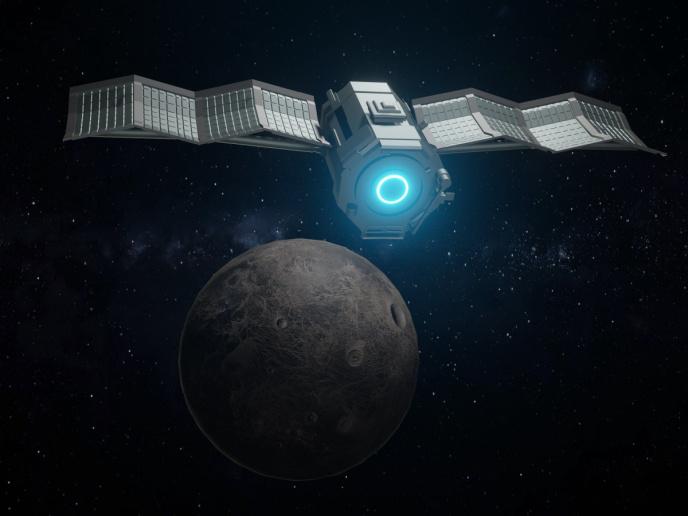 INVICTUS
INVICTUSAs part of the 2023 Horizon Europe calls for Space, the call managed by HaDEA, the Health and Digital Executive Agency, included a topic on space technologies for European non-dependence and competitiveness. Six projects were successfully ranked and the related consortia have been informed. Amongst them is project INVICTUS.
The project aims at finding an alternative to the xenon propellant used for medium power thrusters of satellites, which face a sharp rise in costs and an emerging shortage. Today, there is no European thruster available on the market qualified to be used with krypton propellant and the replacement of xenon by krypton would normally require a full qualification comprising many hours-years of ground testing prior to obtaining the ‘ready for flight’ status. INVICTUS proposes to implement a novel qualification approach to extend the qualification status of established electrical propulsion systems. By the end of project, the PPS ®5000 thruster will be ready for flight using krypton, with a change from an Asian to an EU supplier for the cathode emitter.
INVICTUS will receive a grant of close to €3.0M.
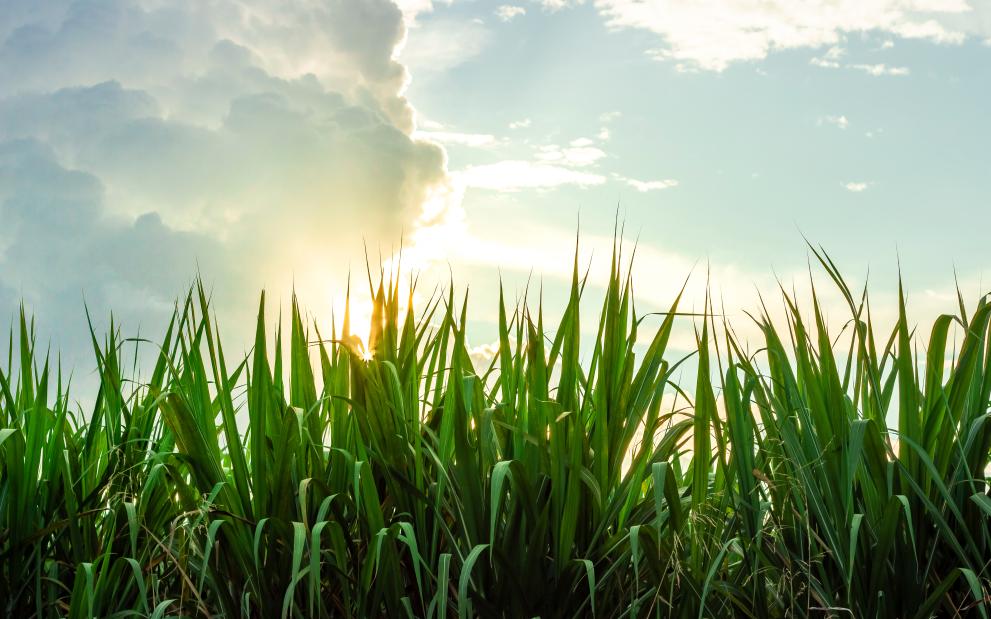 DINOSAR
DINOSARAs part of the 2022 Horizon Europe calls for Space, the 2022 call managed by EUSPA, the EU Agency for the Space Programme, included a topic for designing space-based downstream applications with international partners.
Four projects were successfully ranked and the related consortia have been informed. Amongst them is project DINOSAR. It aims at developing Copernicus-based algorithms to support smart farming applications that can be used worldwide, clouds or no clouds. This will support farmers to match agricultural inputs (fertilisers, pesticides, water) to what the crop actually needs, decreasing their environmental footprint. It will do so by integrating the diagnostic power of optical, infrared and Synthetic Aperture Radar (SAR) signals to Copernicus data. The project will design a multi-sensor operational monitoring method for a single crop (sugarcane) in Colombia, capable of operating on large data volumes, and then extrapolate this approach to practical field cases and to other crops and geographies.
DINOSAR will receive a grant of close to €1.5M.
 JULIA
JULIAAs part of the 2022 Horizon Europe calls for Space, the 2022 call managed by EUSPA, the EU Agency for the Space Programme, included a topic for developing EGNSS applications for smart mobility.
Four projects were successfully ranked and the related consortia have been informed. Amongst them is project JULIA. Based on the Nemi’s technology stack (http://www.nemi.mobi), the project aims at using satellite-based data to optimize the detection of stops of public transport vehicles, so users know exactly where the bus or tram is, or if it already passed a stop, creating more certainty and predictability. This is especially important for more vulnerable user groups or usage moments, such as for woman when it is dark outside.
JULIA will receive a grant of more than €2.9M.
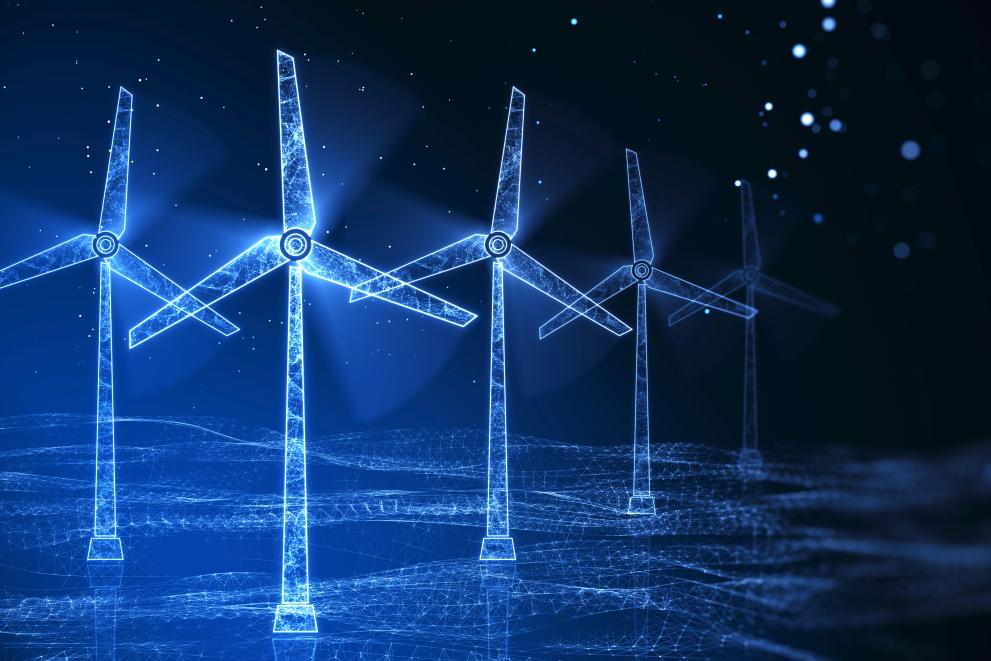 Blue-X
Blue-XAs part of the 2022 Horizon Europe calls for Space, the 2022 call managed by EUSPA, the EU Agency for the Space Programme, included a topic for developing Copernicus downstream applications for the European Data Economy.
Three projects were successfully ranked and the related consortia have been informed. Amongst them is project Blue-X. It aims at transforming data into actionable information for the blue offshore energy market sector. It will bring together cutting-edge developments in Earth observation and all necessary additional information streams such as (customer) in-situ data, meteorology and physical oceanography modelling, as well as engineering expert knowledge. All information will be ingested in an IT system backend to support decision-making for each step in the blue energy facility lifecycle, from site feasibility to decommissioning.
Blue-X will receive a grant of €3.0M.

